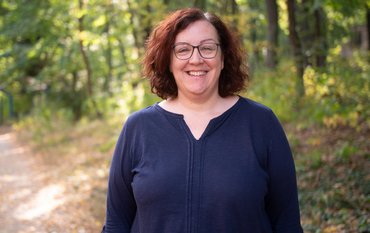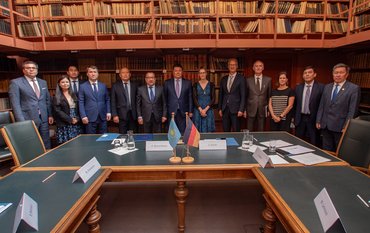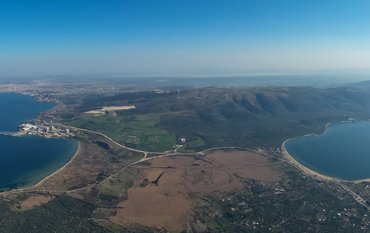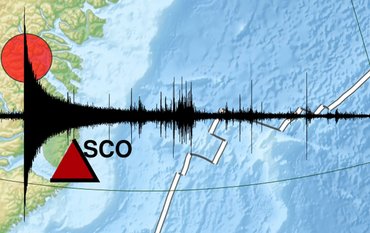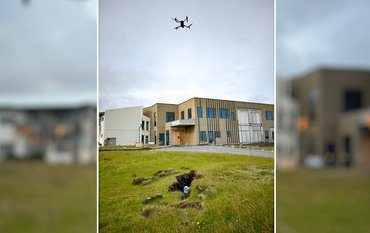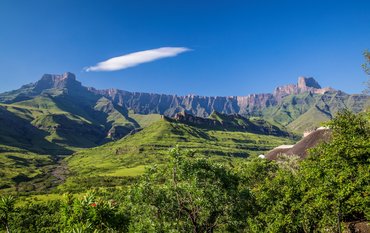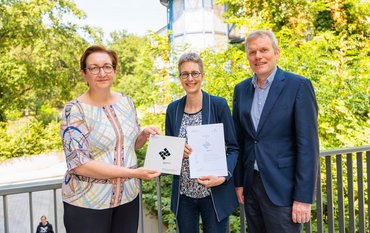A delegation of the German-Kazakh University (DKU) from the largest Kazakh city Almaty recently visited the GFZ. The talks focused on strengthening and expanding cooperation not only in the field of research, but also in capacity building and policy consulting. To this end, DKU establishes so-called innovation centers in Almaty, for example in the fields of "Natural Resources and Sustainable Development" and "Prevention and Conflict Management". The Central Asian Institute for Applied Geosciences (CAIAG) was another important partner in the Central Asian joint projects. Its co-director Oliver Bens from GFZ said: "Both innovation centers of DKU have close links to the geo resource water. This includes aspects of improved forecasting, early warning and scientific policy advice in Central Asia. To facilitate this, DKU has launched the Silk Road Conference series, among others."
GFZ has been cooperating closely with countries in Central Asia for many years, for example in the CAWa (completed) and CAWa-Green (ongoing) projects. The acronym CAWa stands for Central Asian Water. The coordinator of the joint research work at GFZ is Abror Gafurov, a scientist in the GFZ Hydrology Section who himself comes from Central Asia.
The exchange meeting was attended by Wolrad Rommel, President of DKU, DKU Vice President Prof. Barbara Janusz-Pawletta, holder of the UNESCO Chair of Water Resources Management in Central Asia, Abror Gafurov, Oliver Bens, Tilo Schöne as coordinator of the GFZ Focal Site Central Asia, Ludwig Stroink, head of the International Affairs and Projects Group at GFZ, and other researchers from the CAWa-Green consortium.
DKU is a private university with about 850 students and is located in Almaty, the largest city in Kazakhstan. DKU is financed within the framework of DAAD projects and with funds from the German Foreign Office. The DKU is Germany's largest foreign science education project in Central Asia. The core of the concept is close cooperation with German research and educational institutions.



![[Translate to English:] [Translate to English:] Abror Gafurov von dem Schriftzug "Welcome to Azerbaijan" und den UN und COP Logos](/fileadmin/_processed_/2/5/csm_2024_11_Baku_COP29_Abror_Gafurov_1042faec82.jpeg)



![[Translate to English:] Martin Herold standing in front of the library on the Telegrafenberg](/fileadmin/_processed_/c/d/csm_Martin_Herold_d385ee4dd9.jpeg)
![[Translate to English:] Many people are listening to a presentation in the GFZ lecture hall.](/fileadmin/_processed_/c/a/csm_1_Bild1_hell_b9c0e9f5ed.jpeg)





![[Translate to English:] Both scientists sitting on stools in front of a wall of books in the Telegrafenberg library](/fileadmin/_processed_/6/6/csm_Buiter_Castell_DORA_4_e87cb1ea18.jpeg)
![[Translate to English:] Gruppenbild mit 4 Personen](/fileadmin/_processed_/8/d/csm_20241017_GFZ-Emmerman-Medal-005_web_reinhardtundsommer_21a414fa4a.jpeg)






![[Translate to English:] Ice landscape with five red tents](/fileadmin/_processed_/8/9/csm_Zeltlager_auf_dem_Eis_Urheberin_Jenine_McCutcheon_5ced2d523b.jpeg)


